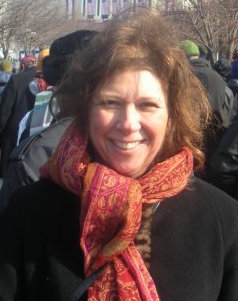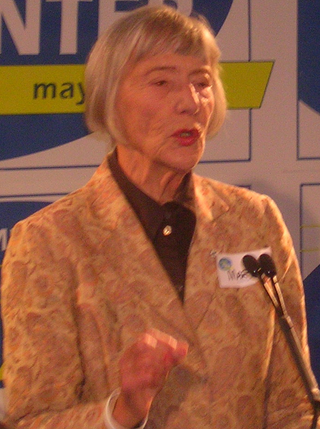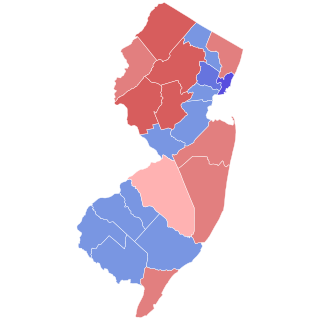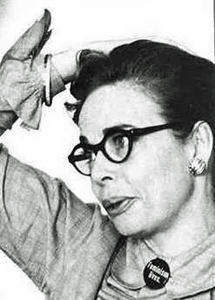Related Research Articles

Millicent Vernon Fenwick was an American fashion editor, politician, and diplomat. A four-term Republican member of the United States House of Representatives from New Jersey, she was renowned for her energy and colorful enthusiasm. She was regarded as a moderate and progressive within her party and was outspoken in favor of civil rights and the women's movement.
Muriel Ann Smith, OC is a Manitoba politician. She ran for the leadership of the New Democratic Party of Manitoba in 1979, and subsequently served in the cabinet of NDP Premier Howard Pawley.

The 1982 United States Senate elections were held on November 2, 1982. They were elections for the United States Senate following Republican gains in 1980. The 33 Senate seats of Class 1 were up for election in 1982. A total of four seats changed hands between parties, with Democrats winning seats in New Jersey and New Mexico, and Republicans taking seats in Nevada and the seat of the lone independent, Senator Harry Byrd Jr., in Virginia. Democrats made a net gain of one seat bringing them to 46 seats, while Republicans stayed at 54 seats for a majority. However, the Democratic gain in New Jersey replaced a Republican that had been appointed earlier in the year. Liberal Republicans senators in Connecticut, Rhode Island and Vermont held onto their seats, keeping the Senate in Republican hands.

Peggy Ann Lautenschlager was an American attorney and Democratic politician who was the first chair of the Wisconsin Ethics Commission from 2016 to 2017, the 42nd Attorney General of Wisconsin from 2003 to 2007, the United States Attorney for the Western District of Wisconsin from 1993 to 2001, a member of the Wisconsin State Assembly for the 52nd district from 1989 to 1993, and the Winnebago County District Attorney from 1985 to 1989. Lautenschlager was the first woman to serve as Attorney General of Wisconsin.

Marion Hilda Dewar was a prominent member of the New Democratic Party (NDP), mayor of Ottawa from 1978 to 1985 and a member of the House of Commons of Canada from 1987 to 1988.

Eleanor Marie Smeal is an American women's rights activist. She is the president and a cofounder of the Feminist Majority Foundation and has served as president of the National Organization for Women for three terms, in addition to her work as an activist, grassroots organizer, lobbyist, and political analyst.

The National Organization for Women (NOW) is an American feminist organization. Founded in 1966, it is legally a 501(c)(4) social welfare organization. The organization consists of 550 chapters in all 50 U.S. states and in Washington, D.C. It is the largest feminist organization in the United States with around 500,000 members. NOW is regarded as one of the main liberal feminist organizations in the US, and primarily lobbies for gender equality within the existing political system. NOW campaigns for constitutional equality, economic justice, reproductive rights, LGBTQIA+ rights and racial justice, and against violence against women.
Joy Rosenheim Simonson was a feminist who worked on women's rights and progressive activist.
Muriel Fox is an American public relations executive and feminist activist.

Terry O'Neill is an American feminist, civil rights attorney, and professor. She was the president of the National Organization for Women (NOW) from 2009 to 2017, as well as president of the NOW Foundation and chair of the NOW Political Action Committees.

Susan B. Anthony Day is a commemorative holiday to celebrate the birth of Susan B. Anthony and women's suffrage in the United States. The holiday is February 15—Anthony's birthday.

The 1982 United States Senate election in New Jersey was held on November 2, 1982.
The Feminist Majority Foundation (FMF) is an American non-profit organization headquartered in Arlington County, Virginia, whose stated mission is to advance non-violence and women's power, equality, and economic development. The name Feminist Majority comes from a 1986 Newsweek/Gallup public opinion poll in which 56 percent of American women self-identified as feminists. President and one of the founders, Eleanor Smeal, chose the name to reflect the results of the poll, implying that the majority of women are feminists.
Sister Joel Read was an American religious sister and the president of Alverno College from 1968 until 2003.
Judith Meuli was an American feminist, activist and scientist.
Judy D. Olian is an Australian-American academic administrator serving as the 9th president of Quinnipiac University in Hamden, Connecticut.

Mrs. America is an American political drama television miniseries produced by FX and originally aired on the sister streaming service FX on Hulu. Created and co-written by Davhi Waller and directed by Anna Boden and Ryan Fleck, Amma Asante, Laure de Clermont-Tonnerre, and Janicza Bravo, the series details the unsuccessful political movement to pass the Equal Rights Amendment and the unexpected backlash led by conservative activist Phyllis Schlafly in the 1970s. It features a large ensemble cast led by Cate Blanchett, Rose Byrne, Uzo Aduba, Elizabeth Banks, Margo Martindale, John Slattery, Tracey Ullman, and Sarah Paulson.
Nikki Beare was an American feminist, journalist, and lobbyist who served as president of Florida's National Organization for Women (NOW) chapter.

Jo Ann Evansgardner was an American psychologist and social activist. Born in Latrobe, Pennsylvania, she studied psychology at the University of Pittsburgh and met her husband, Gerald Gardner, whom she married the same year she received her bachelor's degree. The couple moved to Dublin, Ireland, but returned to Pittsburgh after five years, where Evansgardner received a doctorate in experimental psychology. She co-founded the Association for Women in Psychology in 1969 and was active alongside her husband in the NAACP and numerous feminist organizations.
Lillian T. Ciarrochi was an American feminist. She was known for her work with the National Organization for Women in advocating for the ratification of the Equal Rights Amendment in Florida.
References
- ↑ "Celebrating Our Presidents: Judy Goldsmith,1982-1985 (Profile)". NOW website. Archived from the original on 2010-01-21.
- ↑ "History". Veteran Feminists of America.
- ↑ The New York Times Biographical Service, vol. 15. 1984 (July), p. 922.
- 1 2 3 4 5 6 Brooke, James (1984-07-05). "WOMAN IN THE NEWS; FINDING FEMINIST POWER". The New York Times. ISSN 0362-4331 . Retrieved 2016-03-16.
- 1 2 3 4 5 MPTV1036 (2014-11-17), I Remember | Program | #2107 -- Judy Goldsmith , retrieved 2016-03-15
{{citation}}: CS1 maint: numeric names: authors list (link) - ↑ Salmans, Sandra (28 June 1984). "THE RISING FORCE OF WOMEN'S PACS". The New York Times. p. 22. Archived from the original on 2013-11-13. Retrieved 28 October 2013.
- ↑ Neal, Steve (29 November 1985). "Can't The Women Play This Game?". Chicago Tribune . Archived from the original on 2013-10-29. Retrieved 28 October 2013.
- ↑ http://www.icue.com/portal/site/iCue/iCueSearchResultsNavItem/?selectedValue=ADVANCED&terms=Steinem&showResults=yes#%5B%5D
- 1 2 "Judy Goldsmith Young Woman Leadership Award" (PDF). University of Wisconsin–Fond du Lac website. Archived from the original (PDF) on 2010-06-10.
- ↑ "The Milwaukee Sentinel - Google News Archive Search". news.google.com. Retrieved 2016-03-16.[ permanent dead link ]
- 1 2 3 4 Omang, Joanne (1982-10-11). "NOW Elects Judy Goldsmith as President". The Washington Post. ISSN 0190-8286 . Retrieved 2016-03-16.
- ↑ Brozan, Nadine (8 June 1985). "SMEAL AND GOLDSMITH FIGHT FOR LEADERSHIP OF NOW". The New York Times.
- 1 2 Denfeld, Rene (2009-09-26). The New Victorians: A Young Woman's Challenge to the Old Feminist Order. Grand Central Publishing. ISBN 9780446565233.
- ↑ "The Feminist Chronicles, 1953-1993 - 1984 - Feminist Majority Foundation". www.feminist.org. Retrieved 2016-03-16.
- ↑ "Presidents | National Organization for Women". now.org. Retrieved 2016-03-16.
- 1 2 3 4 5 6 "Smeal Wins Battle For Top Now Post". tribunedigital-sunsentinel. Archived from the original on May 13, 2016. Retrieved 2016-03-16.
- ↑ Klemesrud, Judy (1985-07-27). "NOW'S PRESIDENT: ASSESSING THE ELECTION". The New York Times. ISSN 0362-4331 . Retrieved 2016-03-16.